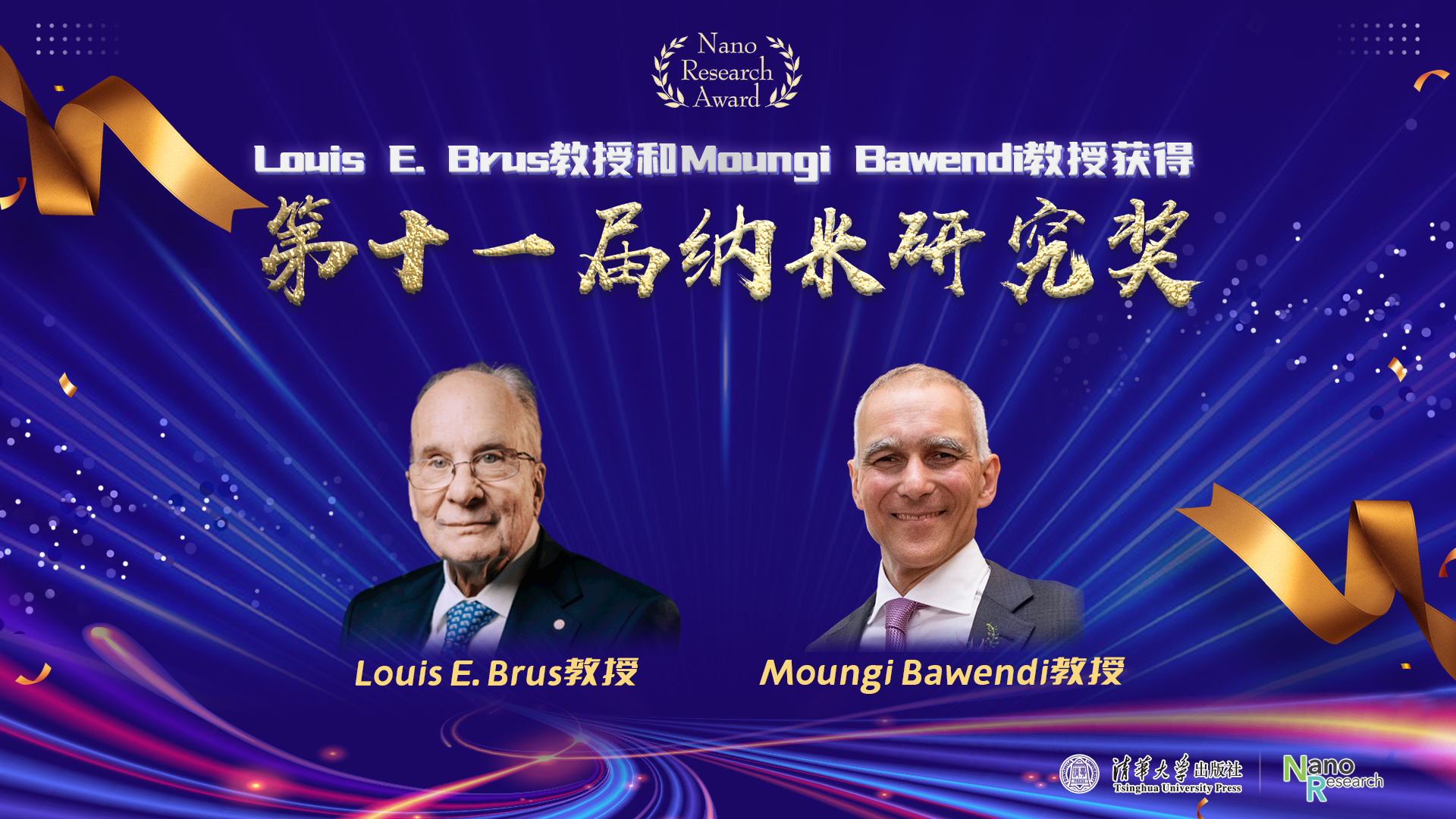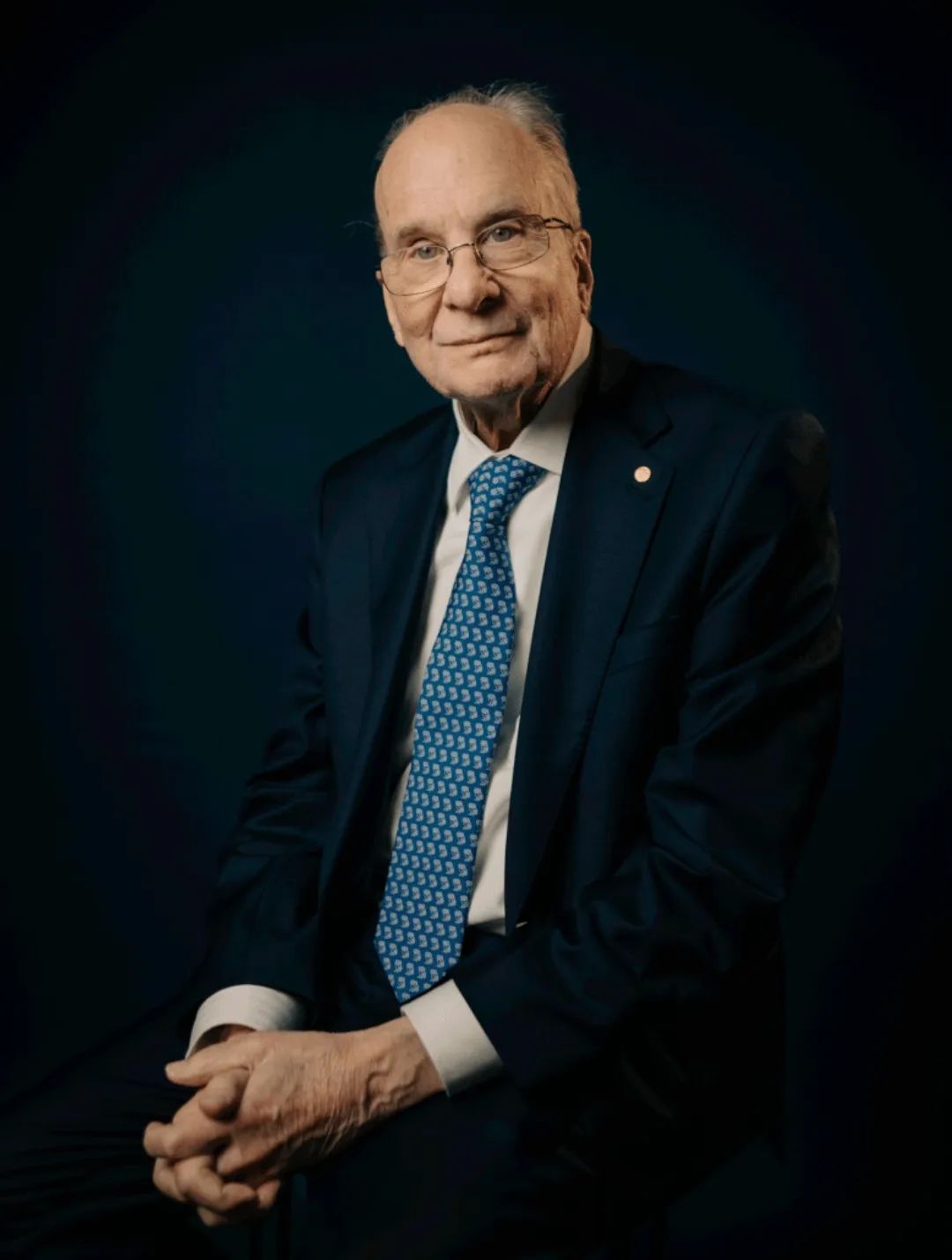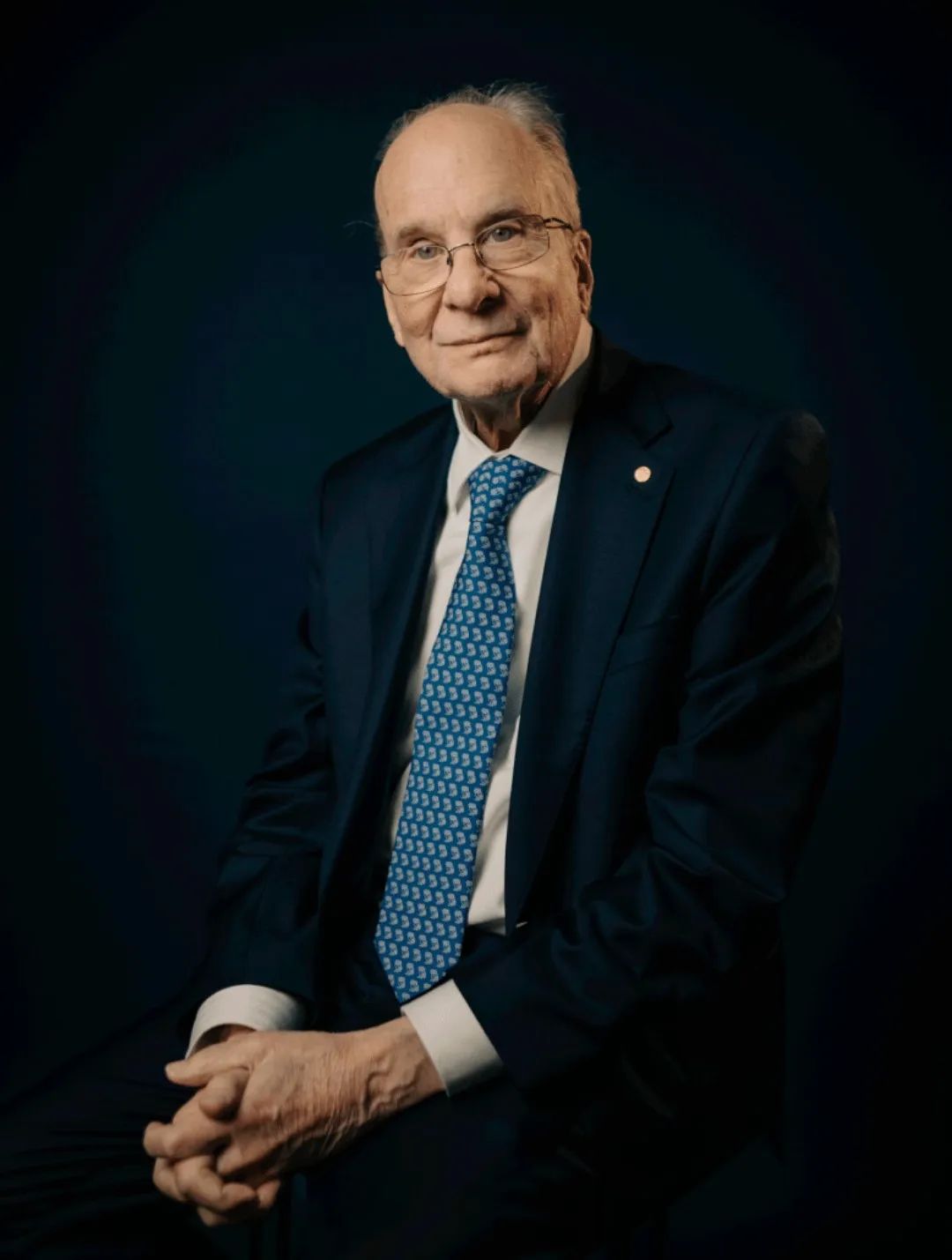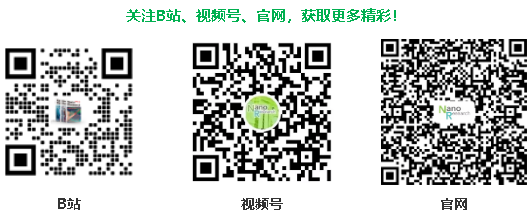博文
Louis E. Brus教授和Moungi Bawendi教授获得第十一届纳米研究奖
 精选
精选
||

根据评奖委员会决定,《纳米研究(英文)》编辑部荣幸地宣布,第十一届纳米研究奖(Nano Research Award)授予两位国际纳米科技领军人物:美国哥伦比亚大学Louis E. Brus院士以及麻省理工学院Moungi Bawendi院士。两位教授应邀将在《纳米研究(英文)》发表专题文章。

Louis E. Brus院士
Louis E. Brus教授,纳米科学家,美国艺术与科学院院士、美国国家科学院院士、挪威科学与文学院外籍院士,诺贝尔化学奖获得者,美国哥伦比亚大学塞缪尔-莱瑟姆-米奇尔荣誉教授和特别研究科学家。Louis E. Brus 教授发现并分析了在液体中合成的胶体半导体纳米晶体(化学量子点)中与尺寸有关的量子效应。与较大的粒子相比,较小的粒子吸收的光偏向蓝色。这一具有开创性的科学贡献对人类社会产生了广泛影响。Brus教授分别于 1980 年和 1998 年当选为美国物理学会院士和美国艺术与科学院院士,并于 2004 年当选为美国国家科学院院士。他与 Moungi Bawendi 和 Alexy Ekimov 共同获得了 2023 年诺贝尔化学奖。Brus教授曾获得2005 年美国化学学会材料化学奖和 2008 年卡夫利纳米科学奖。2006 年,Brus教授与俄罗斯科学家Alexander L. Efros 和 Ekimov分享了美国光学学会的 R.W. Wood奖,以表彰他们在量子点方面的研究成果。此外,Brus教授还因其对纳米晶体的持续研究于2010 年获得了美国国家科学院化学科学奖。他于 1998 年担任戈登研究会议董事会主席。

Moungi Bawendi院士
Moungi Bawendi教授,化学科学家,美国艺术与科学院院士、美国国家科学院院士,诺贝尔化学奖获得者,美国麻省理工学院教授。Moungi Bawendi 教授在生产具有特定尺寸和光滑表面的近乎完美的量子点方面做出了开创性的贡献,此方法简单易用、具有革命性意义。这一重要发现给人类社会带来了革命性的变化。Moungi Bawendi 教授是麻省理工学院莱斯特-沃尔夫化学教授。Bawendi教授于 1994 年当选斯隆研究员,2004 年当选美国艺术与科学院院士,2007 年当选美国国家科学院院士。他曾获得 2023 年诺贝尔化学奖、2001 年雷蒙德和贝弗利-赛克勒国际化学奖、2006 年欧内斯特-奥兰多-劳伦斯奖和 2010 年美国化学学会胶体化学奖。
为表彰在纳米研究领域做出重大贡献、进而推动纳米学科发展的杰出科学家,《纳米研究(英文)》(Nano Research)编委会、清华大学出版社以及施普林格出版社于2013年共同设立了国际性的纳米研究奖。纳米研究奖每年评选一次,奖金为1万美元。候选人来自世界各个国家和地区,由《纳米研究(英文)》编委会成员进行提名,评奖委员会决定最终人选。前十届获奖者分别是:哈佛大学 Charles M. Lieber教授 (2014)、加州大学伯克利分校 Paul Alivisatos教授 (2015)、加州大学伯克利分校杨培东教授 (2016)、中国科学技术大学谢毅教授 (2017)、中国科学院理化技术研究所江雷教授(2018)以及美国西北大学Chad A. Mirkin教授(2018)、中国科学院大连化学物理研究所包信和教授(2019)以及美国加州大学伯克利分校Omar M. Yaghi教授(2019)、复旦大学赵东元教授(2020)以及美国西北大学John A. Rogers教授(2020)、北京大学刘忠范教授(2021)以及荷兰代尔夫特工业大学Cees Dekker教授(2021)、斯坦福大学戴宏杰教授(2022)以及佐治亚理工学院王中林教授(2022)、斯坦福大学崔屹教授(2023)以及麻省理工学院Robert Langer教授(2023)。
《纳米研究(英文)》是由清华大学和中国化学会主办、清华大学出版社出版的优秀英文学术期刊,主要发表在纳米研究领域具有原创性的世界一流科研论文以及世界顶级科学家撰写的权威性、全面性的综述论文。目前最新的影响因子为9.9。
Eleventh Nano Research Award goes to Louis E. Brus and Moungi Bawendi
Tsinghua University Press and Springer Nature honor two of the world’s leading experts in nanoscience and nanotechnology
Two outstanding scientists have been awarded the annual Nano Research Award which is sponsored by Tsinghua University Press (TUP) and Springer Nature. Louis E. Brus is an emeritus Professor at Columbia University in New York. Moungi Bawendi is the Professor at Massachusetts Institute of Technology.

Professor Louis E. Brus
Professor Louis E. Brus won the Nano Research Award for his pioneering contributions on discovering and analyzing size-dependent quantum effects in colloidal semiconductor nanocrystals (chemical quantum dots) synthesized in liquids. Smaller particles absorbed light that shifted towards blue compared to larger particles. Today, quantum dots are used in a wide range of electronic products, including computer and television screens and LED lamps. They can also be used to map biological tissue. These important discoveries have had wide impact.
Professor Louis E. Brus is currently the Samuel Latham Mitchill Professor Emeritus, and Special Research Scientist at Columbia University. Prof. Brus became an elected fellow of the American Physical Society in 1980 and of the American Academy of Arts and Sciences in 1998, and he was elected to the United States National Academy of Sciences in 2004. He shared the Nobel Prize in Chemistry in 2023 with Moungi Bawendi and Alexy Ekimov. He won the American Chemical Society’s Chemistry of Materials Prize in 2005 and the Kavli Prize in Nanoscience in 2008. Prof. Brus shared the R.W. Wood Prize of the Optical Society of America (OSA, now Optica) with Russian scientists Alexander L. Efros and Alexy Ekimov in 2006 for their work with quantum dots. In addition, Prof. Brus received the National Academy of Sciences Award in Chemical Sciences in 2010 for his ongoing work with nanocrystals. He served as chairman of the Board of Trustees of the Gordon Research Conferences in 1998.

Professor Moungi Bawendi
Professor Moungi Bawendi was selected for the award in recognition of his groundbreaking contributions to the production of near-perfect quantum dots of specified sizes and smooth surfaces. The method he pioneered is easy to use and revolutionary. In today's life, quantum dots are used in a wide range of industries, including the field of display technology, photovoltaics and biomedicine. This important discovery has revolutionized human society.
Professor Moungi Bawendi is the Lester Wolfe Professor of Chemistry at MIT. Prof. Bawendi received a Sloan Research Fellowship in 1994, he was elected to the American Academy of Arts and Sciences in 2004, and to the National Academy of Sciences in 2007. He received the Nobel Prize in Chemistry in 2023, the Raymond and Beverly Sackler International Prize in Chemistry in 2001, the Ernest Orlando Lawrence Prize in 2006, and the American Chemical Society (ACS) Award in Colloid Chemistry in 2010.
The Nano Research Award, established by the journal Nano Research together with TUP and Springer Nature in 2013, is awarded for outstanding contributions to nano research by an individual scientist. The winner is selected by the Award Committee (the Editors-in-Chief, Associate Editors, representatives from TUP and Springer Nature) after receiving nominations from the members of the Nano Research Editorial Board. The first sixteen recipients of the honor were Prof. Charles M. Lieber of Harvard University, Prof. Paul Alivisatos and Prof. Peidong Yang, both of the University of California Berkeley, Prof. Yi Xie of University of Science and Technology of China, Prof. Lei Jiang of Chinese Academy of Sciences, Prof. Chad Mirkin of Northwestern University, Prof. Xinhe Bao of Chinese Academy of Sciences, Prof. Omar M. Yaghi of the University of California Berkeley, Prof. Dongyuan Zhao of Fudan University, Prof. John A. Rogers of Northwestern University, Prof. Zhongfan Liu of Peking University, Prof. Cees Dekker of Delft University of Technology, Prof. Hongjie Dai of Stanford University, Prof. Zhong Lin Wang of Georgia Institute of Technology, Prof. Yi Cui of Stanford University, Prof. Robert Langer of Massachusetts Institute of Technology.
更多纳米研究奖信息:
崔屹教授和Robert Langer教授获得第十届纳米研究奖
赵东元教授和John A. Rogers教授获得第七届纳米研究奖
包信和教授和Omar M. Yaghi教授获得第六届纳米研究奖

https://blog.sciencenet.cn/blog-3534092-1432985.html
上一篇:苏州大学王照奎/娄艳辉等综述:钙钛矿层的沉积技术实现大面积光伏模组
下一篇:安徽工业大学教授冉松林:关于轻质、高强B4C–TiB2导电复相陶瓷的性能可控调控的研究